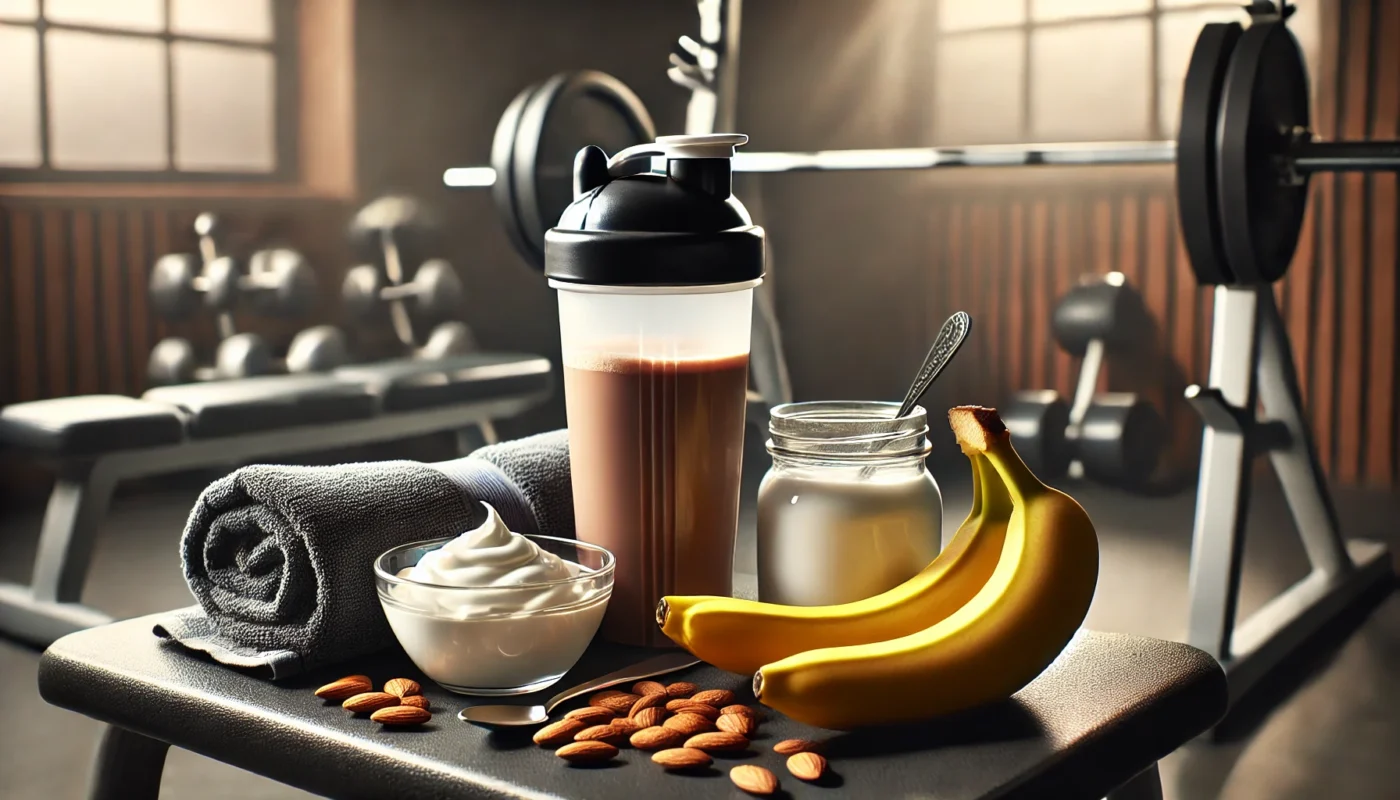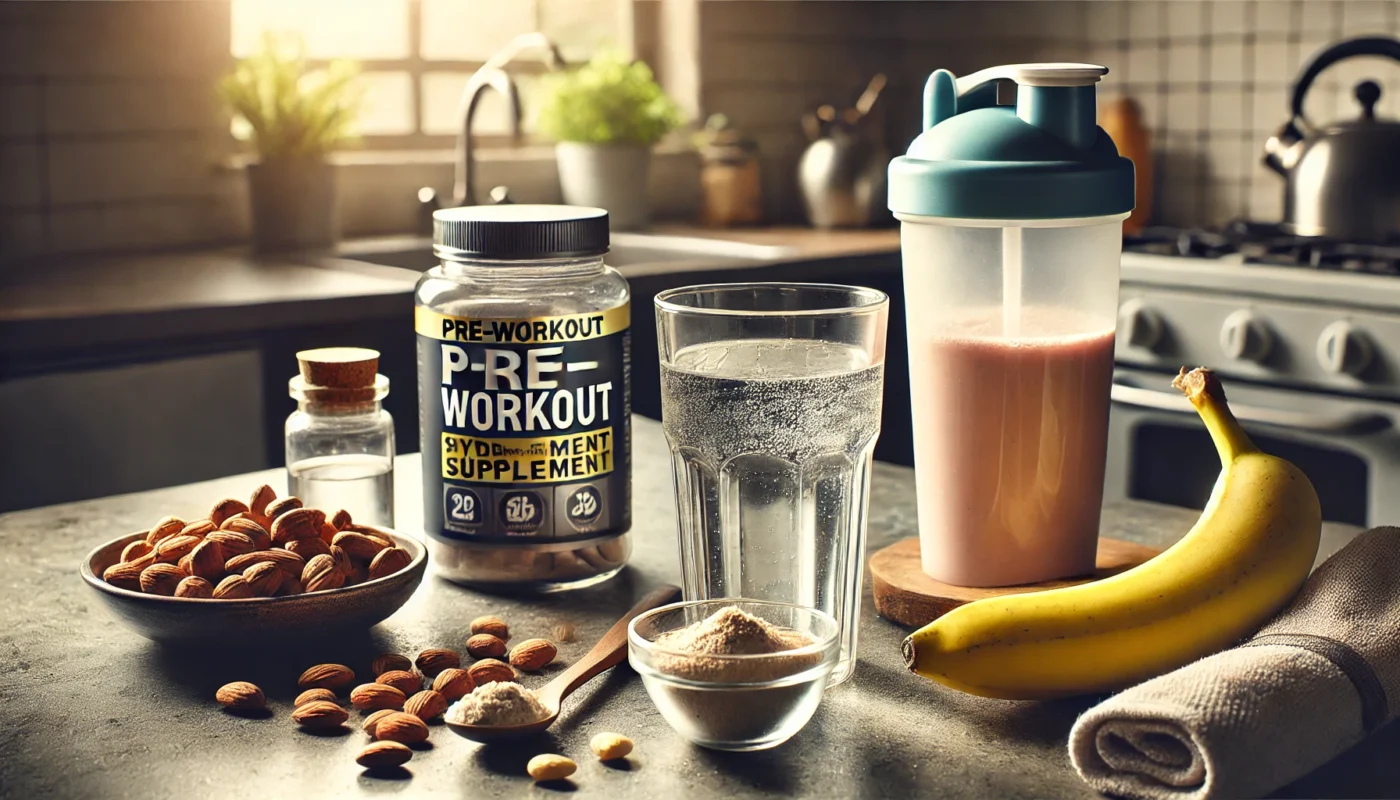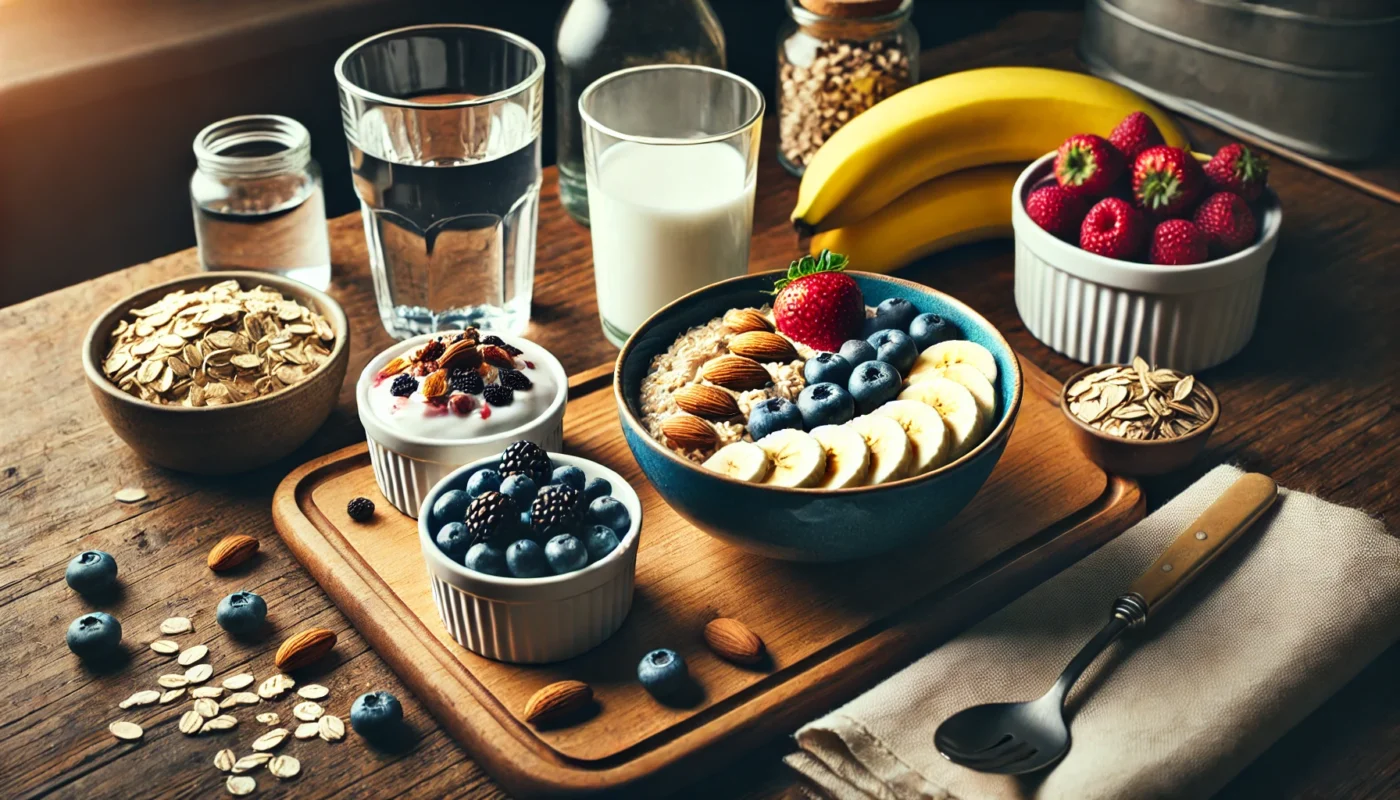Pre-workout nutrition is not merely about eating something before you exercise. It involves strategically timing your intake of macronutrients—carbohydrates, proteins, and fats—to optimize energy levels and muscle growth.
You may also like: High Protein Foods to Fuel Workouts

Carbohydrates: Your Energy Powerhouse
Carbohydrates are the primary source of energy for your body during exercise. They break down into glucose, which is stored as glycogen in muscles and the liver. During intense workouts, glycogen is the fuel that powers your muscles, allowing you to perform at your best.
Research shows that consuming carbohydrates before exercising increases glycogen stores and delays fatigue, thereby enhancing performance and endurance. Opt for complex carbohydrates like whole grains, oats, and sweet potatoes, which provide sustained energy release.
Types of Carbohydrates
Carbohydrates can be categorized into simple and complex forms. Simple carbohydrates, such as fruits and sugars, offer a quick energy boost due to their rapid digestion. In contrast, complex carbohydrates, like those found in whole grains, provide a more sustained release of energy, which is beneficial for prolonged workouts.
Glycogen Storage and Utilization
The body stores carbohydrates as glycogen in the liver and muscles. The capacity of glycogen storage is limited, making it essential to replenish these stores before high-intensity workouts. Understanding your body’s glycogen demands can help tailor your carbohydrate intake to optimize performance.
Timing Carbohydrate Intake
Timing is crucial when it comes to carbohydrate intake. Consuming carbohydrates 1-3 hours before a workout allows for optimal digestion and glycogen storage. This timing helps prevent energy crashes and maintains stamina throughout your exercise session.
Proteins: The Building Blocks of Muscles
Protein is essential for muscle repair and growth. Consuming protein before a workout helps in the synthesis of muscle proteins, thereby promoting recovery and growth.
Studies suggest that ingesting 20-30 grams of protein before exercising can optimize muscle protein synthesis. Choose high-quality protein sources such as lean meats, dairy, or plant-based options like lentils and chickpeas.
Role of Amino Acids
Proteins are composed of amino acids, which are vital for muscle repair and growth. Essential amino acids, particularly branched-chain amino acids (BCAAs), play a critical role in muscle protein synthesis. Including them in your pre-workout nutrition can enhance recovery and reduce muscle soreness.
Choosing the Right Protein Sources
Selecting high-quality protein sources is crucial for maximizing muscle gains. Animal-based proteins, such as chicken and fish, offer complete amino acid profiles. Plant-based alternatives, like quinoa and tofu, can also provide necessary nutrients when combined appropriately.
Timing Protein Intake
For optimal results, consume protein about 30 minutes to 2 hours before exercising. This timing ensures that amino acids are available in your bloodstream to support muscle repair and growth during and after your workout.
Fats: The Slow-Burning Fuel
While carbohydrates and proteins play a more prominent role in pre-workout nutrition, healthy fats should not be overlooked. They provide a long-lasting energy source for lower-intensity and endurance exercises.
Incorporate healthy fats like avocados, nuts, and seeds into your pre-workout meal to ensure a balanced intake of macronutrients.
Types of Healthy Fats
Healthy fats include monounsaturated and polyunsaturated fats, which are beneficial for heart health and energy. Sources such as olive oil, nuts, and seeds are excellent choices for incorporating these fats into your diet.
Role in Endurance Exercises
For endurance athletes, fats serve as a crucial energy reserve. They help sustain energy levels during long workouts, where glycogen stores might be depleted. Understanding the role of fats can aid in planning a balanced pre-workout meal.
Integrating Fats Without Overconsumption
While fats are essential, moderation is key to avoid digestive discomfort during workouts. Combine healthy fats with carbohydrates and proteins to create a balanced meal that supports both energy and muscle needs.
Timing Your Pre-Workout Meal
The timing of your pre-workout meal is as important as the content. Ideally, consume your meal 1-3 hours before exercising. This time frame allows for proper digestion and absorption of nutrients, ensuring optimal energy levels during your workout.
Importance of Meal Timing
Proper meal timing ensures that your body has adequate time to digest and absorb nutrients, reducing the risk of gastrointestinal discomfort. It also maximizes the availability of glucose and amino acids during your workout.
Small Snacks for Quick Energy
If you’re pressed for time, a smaller snack 30-60 minutes before your workout can provide a quick energy boost. However, avoid high-fat and high-fiber foods close to your workout, as they may cause digestive discomfort.
Individual Differences in Timing
Each individual has unique digestive capabilities and energy needs. Experimenting with different meal timings can help identify the optimal window that aligns with your body’s responses and exercise routine.
Crafting the Best Pre-Workout Meal for Muscle Gain
Balanced Meals for Optimal Performance
The best pre-workout meal for muscle gain should be a balanced mix of carbohydrates, proteins, and fats. Here are some examples:
- Grilled Chicken with Quinoa and Vegetables: This meal provides lean protein, complex carbohydrates, and fiber-rich veggies, ensuring sustained energy and muscle support.
- Oatmeal with Berries and Almond Butter: A wholesome option that offers slow-releasing carbohydrates, antioxidants, and healthy fats.
Customizing Meal Components
Customizing your meal components based on your dietary preferences and goals can enhance satisfaction and adherence to your nutrition plan. Consider your taste preferences and nutritional needs when designing pre-workout meals.
Incorporating Micronutrients
In addition to macronutrients, incorporating vitamins and minerals is essential for overall health and performance. Vegetables and fruits are excellent sources of micronutrients that can complement your pre-workout meal.
Addressing Dietary Restrictions
For those with dietary restrictions or allergies, finding suitable substitutes for common pre-workout foods is crucial. Plant-based or allergen-free alternatives can provide similar nutritional benefits without compromising health.
Quick Snacks for On-the-Go Energy
If a full meal isn’t feasible, here are some quick snack ideas:
- Greek Yogurt with Honey and Nuts: A protein-packed snack with natural sugars for quick energy.
- Banana with Peanut Butter: A simple yet effective combination of carbohydrates and healthy fats.
Portable Snack Options
For busy individuals, portable snacks are a convenient solution. Energy bars, trail mix, or fruit smoothies can be easily prepared and consumed on the go, ensuring you don’t skip pre-workout nutrition.
Balancing Convenience and Nutrition
While convenience is important, it’s essential to ensure that quick snacks still provide a balance of macronutrients. Prioritize snacks that offer a mix of carbohydrates, proteins, and fats to support your energy and muscle needs.
Preparing Snacks in Advance
Preparing snacks in advance can save time and ensure you always have nutritious options available. Batch-preparing energy bites or portioning out nuts and dried fruits can streamline your pre-workout routine.

Hydration: The Unsung Hero
Hydration plays a vital role in pre-workout nutrition. Dehydration can significantly impair physical performance and recovery. Ensure you are adequately hydrated before starting your workout by drinking water throughout the day.
Importance of Hydration for Performance
Hydration is crucial for maintaining blood volume, regulating body temperature, and supporting muscle function. Even mild dehydration can lead to decreased performance and increased fatigue, making proper hydration essential.
Pre-Workout Hydration Strategies
Consider having a glass of water or a sports drink 15-30 minutes before exercising, especially if you’re engaging in a high-intensity workout or exercising in hot conditions. This ensures your body is well-hydrated and ready for physical exertion.
Signs of Dehydration
Recognizing the signs of dehydration, such as thirst, dry mouth, or decreased urine output, can help you take timely action. Monitoring your hydration status throughout the day can prevent performance dips during workouts.
Supplements: Do They Make a Difference?
While whole foods should be your primary source of nutrients, certain supplements can enhance your pre-workout nutrition.
Creatine: Boosting Strength and Mass
Creatine is known for improving strength and muscle mass. It’s one of the most researched supplements, with evidence supporting its efficacy in enhancing workout performance. Consuming 3-5 grams before a workout can boost performance.
Caffeine: Enhancing Focus and Endurance
As a natural stimulant, caffeine can enhance focus, endurance, and exercise intensity. A dose of 150-300 mg about 30 minutes before a workout is effective for most individuals. However, individual sensitivity to caffeine varies, so adjust your intake accordingly.
Branched-Chain Amino Acids (BCAAs): Supporting Recovery
BCAAs can reduce muscle soreness and support recovery. Consider taking 5-10 grams before or during your workout to aid in muscle repair and reduce post-exercise discomfort. BCAAs can be particularly beneficial during intense training periods or when muscle soreness is a concern.
Personalizing Your Pre-Workout Nutrition
Every individual is unique, and so are their nutritional needs. Experiment with different foods, timing, and portion sizes to determine what works best for you. Pay attention to how your body responds and adjust your pre-workout nutrition plan accordingly.
Understanding Your Body’s Needs
Listening to your body’s signals is crucial for personalizing your nutrition plan. Keep a journal to track your energy levels, performance, and recovery, which can provide insights into the effectiveness of your pre-workout nutrition.
Adjusting for Specific Goals
Whether your goal is muscle gain, fat loss, or endurance improvement, tailoring your nutrition to align with these objectives is essential. Different goals may require variations in macronutrient ratios and meal timing.
Seeking Professional Guidance
For those with specific health conditions or dietary restrictions, consulting a healthcare professional or a registered dietitian can provide personalized guidance. Expert advice can help you navigate complex nutritional needs and optimize your pre-workout strategy.

Conclusion
Fueling your body with the right pre-workout nutrition is a powerful strategy for enhancing muscle development and overall performance. By understanding the roles of carbohydrates, proteins, and fats, timing your meals appropriately, and considering hydration and supplements, you can optimize your workouts and achieve your fitness goals.
Consistency: The Key to Success
Remember, consistency is key. Make pre-workout nutrition a regular part of your fitness routine, and you’ll be well on your way to building the strong, healthy body you desire. With dedication and the right approach, your pre-workout nutrition can become a cornerstone of your fitness journey.
Embracing a Holistic Approach
While nutrition is vital, it’s also important to consider other factors such as rest, stress management, and overall lifestyle habits. A holistic approach can further enhance your fitness outcomes and support long-term health and wellness.
Celebrating Progress
As you refine your pre-workout nutrition, take time to celebrate your progress. Acknowledge improvements in performance, recovery, and body composition, and use these achievements as motivation to continue your journey toward optimal health and fitness.
Hydration, Pre-Workout Nutrition, Supplements, Creatine, Caffeine, BCAAs, Muscle Recovery, Fitness Goals, Nutrition Strategies, Performance Enhancement, Health and Wellness, Exercise, Sports Nutrition, Personal Training, Endurance Training
Further Reading:
What Should I Eat 30 Minutes Before a Workout?
The Best Pre-Workout Snacks to Keep Your Workouts Fuelled
When and What to Eat Before a Workout
Important Note: The information contained in this article is for general informational purposes only, and should not be construed as health or medical advice, nor is it intended to diagnose, prevent, treat, or cure any disease or health condition. Before embarking on any diet, fitness regimen, or program of nutritional supplementation, it is advisable to consult your healthcare professional in order to determine its safety and probable efficacy in terms of your individual state of health.
Regarding Nutritional Supplements Or Other Non-Prescription Health Products: If any nutritional supplements or other non-prescription health products are mentioned in the foregoing article, any claims or statements made about them have not been evaluated by the U.S. Food and Drug Administration, and such nutritional supplements or other health products are not intended to diagnose, treat, cure, or prevent any disease.

